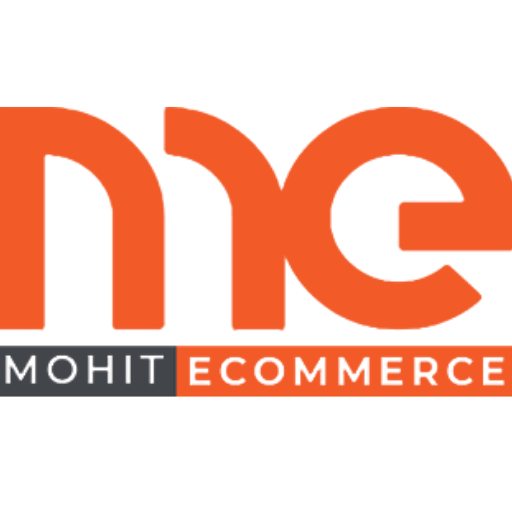To excel as an eCommerce manager, focus on developing strategic business strategies and collaborating with teams to execute impactful marketing campaigns. Analyze sales data to uncover growth opportunities and enhance customer experiences for long-lasting loyalty. Efficiently manage product listings and optimize user experience on your eCommerce platform.
Cultivate analytical expertise and craft digital marketing strategies to boost conversion rates. Utilize social media engagement, email marketing campaigns, and targeted advertising to drive sales. Monitor key eCommerce metrics like conversion rates and cart abandonment to continuously improve. Master these essential skills and strategies for a thriving eCommerce management career. Your success as a manager awaits with these innovative tips and tricks.
Key Takeaways
- Develop a comprehensive eCommerce strategy to drive success.
- Analyze customer insights for better targeting and personalization.
- Utilize analytics tools to monitor KPIs and trends effectively.
- Implement A/B testing for data-driven decisions and improved user experience.
- Stay updated with the latest eCommerce trends and innovations for strategic alignment.
Understanding the Role of an eCommerce Manager

Understanding the role of an eCommerce manager is necessary for anyone looking to excel in this dynamic field. As an eCommerce manager, you are responsible for developing and implementing business strategies that drive online sales and meet customer expectations. Your communication skills are important in collaborating with cross-functional teams to guarantee the seamless execution of marketing strategies that resonate with your target audience.
To succeed in this role, you must have a deep understanding of business strategy to identify opportunities for growth and profitability in the digital landscape. When staying attuned to customer expectations, you can tailor your approach to deliver exceptional online shopping experiences. Your ability to effectively communicate these strategies to your team is essential for achieving collective goals and fostering a customer-focused culture within your organization.
Innovative thinking and strategic planning will set you apart as an eCommerce manager, enabling you to navigate the ever-evolving digital marketplace with agility and foresight. Embrace the challenges and opportunities that come with this role, and watch your career flourish in the domain of online retail.
Key Responsibilities of an eCommerce Manager
As an eCommerce Manager, your key responsibilities include driving online sales, enhancing customer experiences, and optimizing business strategies. To excel in these areas, you must lead your team effectively, making sure that they are aligned with the goals of the online business.
Building strong relationships with customers is vital for understanding their needs and preferences, ultimately driving sales and fostering loyalty. Effective communication is essential in conveying the brand’s message and providing excellent customer service.
Your role involves analyzing sales data, identifying trends, and implementing strategies to capitalize on opportunities for growth. Collaborating with various departments within the organization is necessary to guarantee a seamless online customer experience. Through continuously evaluating and improving the online platform, you can enhance usability and drive conversion rates.
Essential Skills for Success in eCommerce Management

To succeed in eCommerce management, you must possess a diverse skill set that combines analytical expertise, strategic thought, and a deep understanding of customer behavior.
Customer satisfaction and retention are essential in the online retail space, making it necessary to craft a digital marketing strategy that resonates with your target audience. Understanding the ins and outs of conversion rate optimization is vital for driving sales and maximizing revenue through your online storefront.
Having a sharp eye for data analysis allows you to make informed decisions that enhance the overall customer experience and increase engagement. Strategic thought helps you stay ahead of the competition by identifying market trends and opportunities for growth. By focusing on customer needs and preferences, you can tailor your online storefront to meet their expectations, ultimately leading to higher satisfaction levels and increased loyalty.
Incorporating these skills into your daily eCommerce management practices will not only drive success but also foster long-term relationships with your customers, setting you apart in the competitive online marketplace.
How to Develop a Comprehensive eCommerce Strategy?
Crafting a successful eCommerce plan requires more than just a basic understanding of online retail. To excel in this digital landscape, it’s essential to develop a detailed eCommerce plan that aligns with your business goals and customer needs. Start with analyzing your target audience and their online activities to tailor your approach effectively. Utilize various digital sales channels to reach a wider customer base and drive business growth.
A well-rounded eCommerce plan should cover pre-launch preparations and post-launch marketing efforts. Before launching your online store, conduct thorough market research, define your unique selling points, and set clear objectives. After the launch, focus on optimizing user experience, leveraging social media platforms, and implementing targeted advertising to boost visibility and drive conversions.
Managing Product Listings Effectively
In order to establish a strong online presence and drive sales for your eCommerce business, one important aspect to focus on is managing your product listings effectively. As an eCommerce manager, ensuring that your product listings are optimized and engaging is vital for attracting potential customers and converting visits into sales.
Effective platform management is key in organizing your product listings in a user-friendly manner. Utilize your design knowledge to create visually appealing listings that highlight key product features and benefits. Additionally, understanding your traffic acquisition channels can help tailor your product listings to attract the right audience.
Regularly updating and maintaining your product listings is essential to keep customers engaged and informed about your offerings. Use analytics to track the performance of your listings and make data-driven decisions to enhance their visibility and effectiveness. Through strategically managing your product listings, you can enhance the overall shopping experience for your customers and drive increased conversions on your eCommerce platform.
Optimizing User Experience on Your eCommerce Platform

With a relentless focus on enhancing customer satisfaction and driving conversions, optimizing the user experience on your eCommerce platform is paramount. To guarantee a seamless and enjoyable shopping journey for your customers, here are some tips and tricks to optimize your eCommerce platform:
| Tips & Tricks for Enhancing User Experience |
|---|
| 1. Streamline Navigation – Make it easy for users to find what they are looking for by organizing products into categories and subcategories. |
| 2. Mobile Optimization – Assure your eCommerce platform is responsive and functions well on mobile devices to cater to the growing number of mobile shoppers. |
| 3. Simplified Checkout Process – Minimize the number of steps required to complete a purchase to reduce cart abandonment rates. |
5 Tips for Enhancing Your eCommerce Marketing Strategy

Ready to take your eCommerce marketing strategy to the next level? Incorporating SEO best practices, leveraging social media for engagement, investing in email marketing campaigns, running targeted paid advertising, and analyzing customer insights, you can enhance your reach and impact. These strategies will not only help you attract more customers but also enable you to better understand and cater to their needs for improved sales and customer satisfaction.
1. Utilize SEO Best Practices
To excel as an Ecommerce Manager, you must master the art of utilizing SEO best practices to enhance your eCommerce marketing strategy. SEO best practices are essential for boosting your website’s visibility and driving organic traffic. Start by conducting keyword research to understand what your target audience is searching for. Incorporate these keywords strategically in your website content, meta descriptions, and product listings to improve your search engine rankings.
Optimizing your website’s loading speed and mobile responsiveness is also vital for a seamless user experience, which search engines reward with higher rankings. Furthermore, creating high-quality, engaging content that provides value to your customers not only improves your SEO but also establishes your brand as an industry authority.
Regularly monitoring your site’s performance through analytics and making data-driven decisions will help you fine-tune your SEO strategy for best results. Implementing these SEO tips and tricks, you can enhance your eCommerce marketing strategy and drive sustainable growth for your online business.
2. Leverage Social Media for Engagement
Having established a strong foundation with SEO best practices, your next strategic move as an Ecommerce Manager is to leverage social media for engagement. To excel in this area, it’s essential to have a deep understanding of various social media platforms and their unique features. Tailoring your content to suit each platform will enhance customer engagement and boost the effectiveness of your digital marketing campaigns.
Customer engagement is at the heart of successful post-launch marketing. Through creating compelling and relevant content, you can captivate your audience and drive them towards your eCommerce platform. Utilize interactive posts, videos, and behind-the-scenes glimpses to keep your followers interested and involved.
3. Invest in Email Marketing Campaigns
Commence a journey towards maximizing your eCommerce potential through integrating strategic email marketing campaigns into your overall marketing strategy. Email marketing campaigns are a crucial component of digital marketing for online businesses. They are potent tools for customer acquisition and can significantly enhance your conversion rates. As an eCommerce manager, focusing on email marketing can make you a conversion rate optimizer.
To excel in email marketing campaigns, segment your audience based on their preferences and behaviors. Personalized emails have a higher chance of engaging customers. Utilize automation to send targeted emails at the opportune time, enhancing customer experience and driving sales. A/B testing different email content and designs can help you understand what resonates best with your audience.
Moreover, guarantee your emails are mobile-responsive as a large percentage of users access emails on their phones. Craft compelling subject lines and valuable content to increase open rates. Through investing in email marketing campaigns, you can create a direct line of communication with your customers, leading to increased engagement and sales.
4. Run Targeted Paid Advertising
How can you propel your eCommerce business to new heights and reach your target audience with precision? Running targeted paid advertising campaigns can be a game-changer for your marketing strategy. Here are some innovative tips to enhance your eCommerce advertising efforts:
- Define Your Target Audience: Identify who your ideal customers are and tailor your paid advertising to reach them specifically.
- Create Compelling Ad Copy: Craft engaging and persuasive ad content that highlights your promotional offers and unique selling points.
- Utilize Retargeting: Implement retargeting strategies to reach potential customers who have previously visited your site but didn’t make a purchase.
- Monitor and Optimize: Continuously analyze the performance of your advertising campaigns, tweaking them as needed to maximize results and ROI.
5. Analyze Customer Insights for Better Targeting
To truly excel as an Ecommerce Manager and propel your business to new heights, delving into customer insights for better targeting is essential. Analyzing customer insights is like having a roadmap to guide your online transactions.
Understanding your customers’ behaviors, preferences, and needs, you can tailor your marketing strategies to target the right audience effectively. As an Ecommerce Manager, utilizing data analytics tools to analyze customer insights can provide valuable information that can drive your decision-making process.
Targeting the right audience based on customer insights allows you to create personalized marketing campaigns that resonate with potential customers. Segmenting your audience and delivering relevant content, you can enhance customer engagement and increase conversion rates. Additionally, analyzing customer insights can help you identify trends, anticipate customer needs, and stay ahead of the competition in the fast-paced ecommerce landscape.
As an innovative Ecommerce Manager, leveraging customer insights for better targeting is a strategic approach that can have a significant impact on the success of your online business.
8 Must-Have Tools for eCommerce Managers

To excel as an Ecommerce Manager, you must equip yourself with the fundamental tools for success. Analytics software will provide valuable insights into customer behavior and sales trends. Inventory management systems, CRM tools, ecommerce platforms like Shopify or WooCommerce, and marketing automation tools are vital for streamlining operations and maximizing profits.
1. Analytics Software
Enhance your ecommerce management expertise with state-of-the-art analytics software tools. Leveraging analytics software is essential for making data-driven decisions that can greatly impact your ecommerce success. Here are some key tools and features to keep in mind:
- Google Analytics: Obtain valuable insights into customer behavior, preferences, and traffic sources to optimize your website for better performance.
- Conversion Rate Tracking: Monitor and analyze conversion rates to pinpoint areas for improvement and boost sales.
- Customer Preferences Analysis: Grasp customer preferences through analytics to customize your marketing strategies and product offerings accordingly.
- In-depth Metrics Dashboard: Utilize an in-depth dashboard that provides real-time data on key metrics like sales, website traffic, and customer engagement.
2. Inventory Management Systems
Amid the dynamic landscape of ecommerce management, integrating efficient Inventory Management Systems is essential for maximizing your operational efficiency and customer satisfaction. These systems play a significant role in ensuring that your inventory is accurately tracked and managed across various e-commerce platforms, sales channels, and affiliate channels. Through leveraging modern inventory management systems, you can streamline processes, minimize stockouts, and enhance order fulfillment.
Effective inventory management systems provide real-time insights into your stock levels, sales trends, and supplier information, enabling you to make data-driven decisions and optimize your inventory levels. Through automating tasks such as order processing, restocking, and inventory tracking, you can free up valuable time to focus on strategic initiatives and customer engagement.
Furthermore, these systems can help prevent overselling, improve inventory accuracy, and enhance the overall shopping experience for your customers. Through investing in robust inventory management systems, you can stay ahead of the competition and drive sustainable growth in your e-commerce business.
3. Customer Relationship Management (CRM) Tools
In the world of ecommerce management, where operational efficiency and customer satisfaction reign supreme, Customer Relationship Management (CRM) Tools stand out as indispensable assets for eCommerce Managers. These tools not only help you manage customer interactions effectively but also enable you to make informed business decisions to enhance customer service and drive sales. Here are some key benefits of utilizing CRM tools:
- Customer Data Centralization: Keep all customer information in one place for easy access.
- Personalized Communication: Tailor your interactions with customers based on their preferences and purchase history.
- Enhanced Customer Service: Provide better support through understanding customer needs and resolving issues promptly.
- Customer Segmentation: Divide your customer base into segments for targeted marketing strategies.
4. Ecommerce Platforms (eg, Shopify, WooCommerce)
Amidst the dynamic landscape of ecommerce management, utilizing robust Ecommerce Platforms such as Shopify and WooCommerce is essential for eCommerce Managers seeking to elevate their online businesses.
These ecommerce platforms provide powerful tools to create and manage online stores efficiently. Shopify, known for its user-friendly interface and extensive app store, offers a seamless experience for e-commerce managers to set up and customize their online stores. On the other hand, WooCommerce, a plugin for WordPress, provides flexibility and scalability, ideal for businesses looking for a customizable solution.
For e-commerce managers, choosing the right platform depends on factors such as business size, budget, and technical requirements. Shopify’s all-in-one solution simplifies the setup process, while WooCommerce allows for more customization. Both platforms offer features like inventory management, payment gateways, and order tracking to streamline operations. Leveraging the capabilities of these ecommerce platforms, e-commerce managers can enhance their online presence, drive sales, and provide a seamless shopping experience for customers.
5. Marketing Automation Tools
To excel as an Ecommerce Manager in today’s competitive landscape, incorporating top-tier Marketing Automation Tools is paramount. These tools streamline processes, enhance customer engagement, and drive revenue growth. Here are some essential marketing automation tools to supercharge your eCommerce strategies:
- Email Marketing Platforms: Automate personalized email campaigns to nurture leads and drive conversions effectively.
- Social Media Management Tools: Schedule posts, analyze performance, and engage with your audience across various digital marketing channels seamlessly.
- Content Creation Software: Develop a compelling content strategy with tools that aid in creating, scheduling, and optimizing content for maximum impact.
- Analytics and Reporting Platforms: Monitor key performance metrics, track customer behavior, and gain insights to refine your marketing strategies.
6. Email Marketing Solutions
As an Ecommerce Manager seeking to elevate your marketing strategies, mastering Email Marketing Solutions is a game-changer. To excel in post-launch marketing and drive sales, it’s essential to have a solid email marketing strategy in place. Implementing effective email campaigns can greatly impact your market plans and boost customer engagement.
Investing in email marketing solutions can streamline your communication efforts, allowing for targeted messaging based on customer behavior and preferences. Utilizing automation tools within these solutions can help you reach the right audience at the right time, increasing the likelihood of conversions. Collaborating with your marketing team to create compelling content for your emails is critical for capturing and retaining the interest of your audience.
7. Content Management Systems (CMS)
Incorporating a robust Content Management System (CMS) into your eCommerce strategy is pivotal for maximizing your online presence and customer experience. A CMS empowers you to efficiently manage your website’s content, ensuring a seamless and engaging experience for your visitors. As an eCommerce manager, leveraging content management systems can considerably enhance your product development and marketing strategies. Here are some key benefits:
- Streamlined Content Updates: Easily update product information and content layouts without needing technical expertise.
- Enhanced Collaboration: Facilitate smooth collaboration between team members working on different aspects of your website.
- Improved SEO: Optimize your content for search engines, driving more organic traffic to your site.
- Consistent Branding: Maintain a cohesive brand identity across all your online platforms.
8. Social Media Management Tools
With the digital landscape constantly evolving, staying ahead as an eCommerce manager requires the right arsenal of tools. When it comes to managing your social media presence effectively, utilizing social media management tools is necessary. These tools not only help you schedule posts but also analyze performance metrics to optimize your strategy.
As a content marketer, having access to these tools is essential for creating and publishing engaging social content that resonates with your audience. Moreover, these platforms provide seamless access for content writers to collaborate, ensuring a cohesive brand voice across all channels. Incorporating social media management tools into your post-launch marketing and operations plans can streamline processes and drive results.
Through leveraging these tools, you can track performance, engage with customers, and refine your social media strategy for maximum impact. Stay at the forefront of social media trends through harnessing the power of these must-have tools.
Managing a Remote eCommerce Team
Exploring the world of remote work presents both challenges and opportunities for eCommerce managers leading distributed teams. Managing a remote eCommerce team requires honing specific skills tailored to the virtual environment. Here are some tips to excel in this scenario:
- Leverage Communication Tools: Utilize various platforms like Slack, Zoom, or Microsoft Teams to ensure smooth communication within your remote team.
- Prioritize Team Collaboration: Foster a sense of teamwork by organizing regular virtual meetings, brainstorming sessions, and team-building activities.
- Streamline Hiring Process: Implement efficient virtual interviewing techniques to identify top talent for your remote eCommerce team.
- Embrace Flexible Team Management: Adapt your leadership style to accommodate different time zones and work preferences, promoting a healthy work-life balance for your remote team members.
Creating Effective Reporting and Analytics
To optimize your eCommerce operations and drive informed decision-making, implementing a robust system for creating effective reporting and analytics is essential. As an eCommerce manager, utilizing reporting tools and data analysis is vital in understanding the performance of your online store. Metrics such as conversion rates, customer acquisition costs, and average order value provide valuable insights into the effectiveness of your strategies.
Regularly analyzing these metrics enables you to identify trends, spot areas for improvement, and make data-driven decisions to enhance your eCommerce performance. Effective reporting allows you to track the success of marketing campaigns, product launches, and overall website performance, enabling you to adjust your strategies in real-time.
Utilizing analytics not only helps you understand your customers better but also enables you to tailor your offerings to meet their needs. Harnessing the power of data, you can create personalized shopping experiences, improve customer satisfaction, and drive increased sales. As an eCommerce manager, mastering reporting and analytics is essential to staying ahead in the competitive online marketplace.
How to Optimize the Checkout Process?
As an eCommerce manager aiming for optimization, honing in on the checkout process is key to maximizing conversions and enhancing the overall customer experience. To [GUARANTEE] your checkout process is seamless and efficient, consider the following tips:
- Streamline Steps: Simplify the checkout process by reducing the number of steps required to complete a purchase, minimizing the risk of customers abandoning their carts.
- Implement Guest Checkout: Offer a guest checkout option to cater to customers who prefer a quicker process without having to create an account, reducing bounce rates.
- Clear Call-to-Action: Make sure your call-to-action buttons are prominent and compelling, guiding customers through the checkout process with ease and increasing conversion rates.
- Optimize for Mobile: [ENSURE] your checkout process is mobile-responsive to accommodate the growing number of customers shopping on mobile devices, improving overall user experience.
Understanding eCommerce Metrics and KPIs
Understanding eCommerce Metrics and KPIs is vital for any eCommerce manager looking to make data-driven decisions and measure the success of their online store. Conversion rates and cart abandonment rates are key metrics that provide valuable insights into customer behavior and the effectiveness of your online store. A deep understanding of conversion rates allows you to optimize your marketing strategies and website design to enhance customer engagement and increase sales.
Collaborating closely with your e-commerce team and operations team is essential in analyzing and interpreting these metrics effectively. Working together, you can identify areas for improvement, set realistic goals, and track progress towards achieving them. Regularly monitoring KPIs like average order value, customer acquisition cost, and customer lifetime value enables you to make informed decisions that drive growth and profitability.
Enhancing Customer Service in eCommerce
Enhancing customer service in eCommerce involves creating seamless experiences that prioritize customer satisfaction and loyalty. To keep customers happy and boost conversion rates, it’s essential to focus on the fulfillment process and continuously improve the overall service. Here are some innovative strategies to enhance customer service in your eCommerce business:
- Personalized Interactions: Tailor communication to individual customers to make them feel valued and understood.
- Efficient Issue Resolution: Respond promptly to customer queries or concerns to make sure a smooth shopping experience.
- Streamlined Returns Process: Simplify the returns process to build trust and encourage repeat purchases.
- Diverse Product Range: Offer a wide range of products to cater to different customer preferences and increase satisfaction.
The Importance of A/B Testing in eCommerce
To excel as an Ecommerce Manager, understanding the significance of A/B testing in eCommerce is essential. A/B testing involves comparing two versions of a webpage, email, or other marketing assets to see which one performs better. When conducting A/B tests, you can optimize your ecommerce website for improved conversion rates and enhanced customer experiences. As a digital marketer, A/B testing allows you to make data-driven decisions and continuously refine your strategies to meet the evolving needs of your customers.
How to Stay Updated with eCommerce Trends?
Embracing a proactive approach to staying abreast of eCommerce trends is essential for success in the fast-paced world of online retail. To excel as an eCommerce manager and seize new business opportunities, you must align your strategies with the latest trends. Here’s how you can stay updated:
- Subscribe to Industry Newsletters: Stay informed about the latest developments in eCommerce through subscribing to newsletters from reputable sources.
- Attend Conferences and Webinars: Participating in industry events can provide valuable insights and networking opportunities to help you align your eCommerce strategies with broader business goals.
- Follow Key Influencers: Keep an eye on thought leaders and influencers in the eCommerce space to stay ahead of emerging trends.
- Utilize Analytics Tools: Leverage analytics tools to monitor and analyze eCommerce trends, enabling you to make data-driven decisions that align with your business objectives.
Networking and Professional Development for eCommerce Managers
Keeping your finger on the pulse of the eCommerce landscape means staying informed about the latest trends and actively engaging in networking and professional development opportunities. Networking is essential for eCommerce managers as it opens doors to new partnerships, collaborations, and industry insights. Attend conferences, participate in online forums, and connect with peers to expand your network and stay ahead of the curve.
Furthermore, invest in your professional development by taking courses, certifications, and workshops tailored to eCommerce managers. This will not just enhance your skills but also demonstrate your commitment to growth and excellence in your role.
To excel in your career, consider participating in industry events, webinars, and seminars that cover topics relevant to eCommerce management. Engaging with thought leaders and experts in the field can provide valuable insights and strategies to optimize your eCommerce operations.
In addition, seek mentorship opportunities to gain guidance from experienced professionals and learn from their successes and challenges. Engaging in networking and investing in your professional development, you position yourself for continued success as an eCommerce manager.
How to Handle Supply Chain Challenges?
Managing supply chain challenges is a critical aspect of successful Ecommerce management. When maneuvering through these hurdles, as an Ecommerce Manager, you can employ some effective tips and tricks to ensure smooth operations:
- Establish Strong Relationships: Cultivate solid partnerships with suppliers and logistics providers to enhance communication and collaboration.
- Utilize Technology: Implement supply chain management software to streamline processes, track inventory, and optimize logistics.
- Diversify Sourcing: Reduce dependency risks by working with multiple suppliers and having backup options in place.
- Monitor Performance Metrics: Keep a close eye on key performance indicators like lead times, fulfillment rates, and inventory turnover to identify areas for improvement.
Conclusion
To excel as an Ecommerce Manager and reach the pinnacle of success in the dynamic world of online retail, you must continuously adapt, innovate, and prioritize customer satisfaction. Developing strong business acumen is essential for navigating the ever-changing ecommerce landscape. Craft an action plan that aligns with your company’s goals and market trends, staying ahead of the curve with strategic initiatives. Your keen communication skills will be paramount in fostering relationships with stakeholders and ensuring seamless operations across departments.
When striving to excel in this role, consider the industry’s average salary benchmarks to negotiate fair compensation for your expertise and contributions. Moreover, implementing an objective hiring process will help you build a high-performing team that supports your vision for success. Through combining innovation, strategic thinking, and a focus on customer satisfaction, you can carve out a successful career path as an exceptional eCommerce manager.







